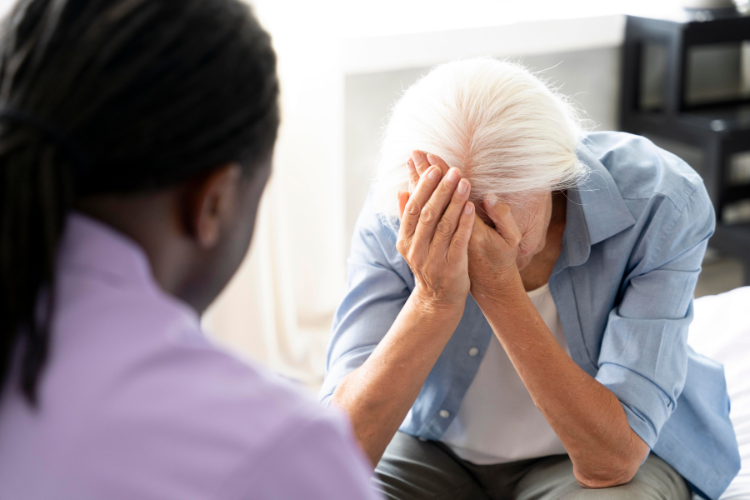
Families expect dignity, safety, and compassion when they entrust a nursing home with the role of caring for their loved ones. Unfortunately, abuse and neglect are common in these facilities, leaving residents vulnerable and families heartbroken.
If you suspect that your loved one is being mistreated, you must gather strong evidence to hold facilities accountable.
Evidence strengthens your case and ensures that nursing home abuse cases are exposed and discontinued. Let’s discuss how to gather evidence in these kinds of cases.
The Importance Of Evidence In Nursing Home Abuse Cases
Evidence plays an important role when filing nursing home abuse claims. This is because it serves as the basis for proving that mistreatment happened, helping to secure justice for vulnerable residents.
If there is no reliable evidence, claims of neglect or abuse may be unsubstantiated. Several types of evidence can demonstrate patterns of neglect, unsafe conditions, and direct abuse, including:
- Medical records
- Photos of injuries
- Witness statements
- Official reports
Besides supporting legal action, strong evidence pressures facilities to improve their standards of care. With enough evidence, families will have better credibility when confronting nursing home administrators or reporting incidents to authorities.
In the long run, evidence ensures that the plights of elderly residents who may be unable to represent themselves are heard. It also ensures that those who are responsible are held accountable for their actions.
7 Ways to Gather Evidence in Nursing Home Abuse Cases
While alarming, nursing home abuse is often hidden. These incidents can be heartbreaking and pose severe risks to the victims’ health and well-being. As a loved one, you must carefully document the abuse and gather substantive evidence. Let’s discuss how to achieve this.
1. Journal All The Signs Of Abuse
One of the most effective ways to gather and secure evidence in nursing home abuse cases is to keep a detailed journal. Families should record every observation, no matter how small, including the following:
- Dates
- Times
- Descriptions of injuries
- Poor hygiene
- Changes in behavior
- Unsafe living conditions
By journaling consistently, you’ll create a timeline that shows the pattern of abuse and neglect. This will make it harder for nursing facilities to deny any wrongdoing.
This written record effectively supports legal claims. It also provides investigators and attorneys with clear evidence to protect the resident’s rights and safety.
2. Keep Accurate And Detailed Records
It is important to keep detailed and accurate records. It will help you build a strong case of nursing home abuse. Gather all billing statements, medical reports, prescriptions, and care plans to check whether your patient is getting the appropriate attention and treatment.
To highlight discrepancies or neglect, keep copies of the following:
- Incident reports
- Facility policies
- Correspondence
- Progress notes
When you keep all the records organized, you will be able to identify the patterns of abuse better, like unexplained health declines or repeated injuries.
These documents work as credible evidence in legal proceedings to help with investigating facility negligence. This way, nursing homes will be held accountable for failing to provide safe and compassionate care.
3. Maintain Communication With Staff
You may be tempted to confront the staff as soon as you suspect that your loved one is suffering abuse. However, you must approach them professionally and calmly.
By asking questions and documenting staff responses, families can identify gaps or inconsistencies in care. Written communication creates a paper trail that becomes useful as evidence later; these include:
- Emails
- Notes
- Text messages
- Logs of questions
- Letters or formal complaints
Even casual conversations sometimes reveal important details about a resident’s treatments, routines, or changes in health. Consistent engagement also shows the facility that the family is attentive and involved.
4. Get Medical Attention
The moment you notice any visible injuries or a change in the health condition of your loved one, you need to seek immediate medical attention.
When a doctor examines them, they will be able to document malnutrition, dehydration, and injuries. Moreover, if there are any other underlying health conditions that the previous doctors neglected and could not find out, you will be able to figure out through:
- Medical records
- Professional evaluations
- Test reports
- Prescription records
- Nursing and progress reports
Physicians or specialists can provide testimonies in legal action if legal action becomes a priority. Immediate care protects the resident’s health and creates a proper record of their condition once the concerns arise.
5. Follow Up With Witnesses
In some cases, staff members or some other residents witness the incident or have important information that can help you with the case. Following up with the witnesses can make your case strong against them.
However, make sure that you are not rude to them. Ask them politely whether they have seen something when the incident happened. Get their statements recorded or in writing, so that you can use them for your case.
Also, get their contact information, so that you can get back to them in case you need anything else. Consistent communication is helpful, and you will be able to preserve details that might be difficult to understand afterwards.
Keep their statements, medical records, and anything you can gather to make the case stronger.
6. Get Expert Testimony
Expert testimony plays a powerful role in nursing home abuse cases. Medical professionals, elder care specialists, and forensic experts can analyze records, facility practices, and injuries to determine whether neglect or abuse occurred.
Their professional opinions carry weight in court, as judges and juries often depend on expert insight to understand complex medical issues. Families can work with attorneys to identify the appropriate experts who can review the evidence and provide credible testimony.
If you can connect the facts with a professional interpretation, expert witnesses help to strengthen your case. You’ll also ensure that nursing homes are held accountable for their action or lack of action.
7. Take Photographs And Videos
When you are preparing a case of nursing home abuse, photos and videos can turn out to be really helpful. Visual documentation records all the injuries, neglect, and unsanitary conditions in a way that cannot be done through written records.
You need to take clear photos with time stamps or videos of bruises, bedsores, and unsafe environments. When you update it frequently in visual records, you will be able to establish a pattern of mistreatment over time.
Also, make sure that you keep copies of this evidence securely in case you need them later for legal proceedings. Through the images, you will be able to provide them with proof and make the case strong, and show the severity of the abuse, negligence, and malpractice.
Collect Evidence Effectively
When filing a nursing home abuse case, you must collect evidence by journaling the signs of abuse, keep accurate records, and save communication with the staff.
You must also get medical attention for your loved one, follow up with witnesses, get expert testimony, take photos, and record videos.











0 Reply
No comments yet.